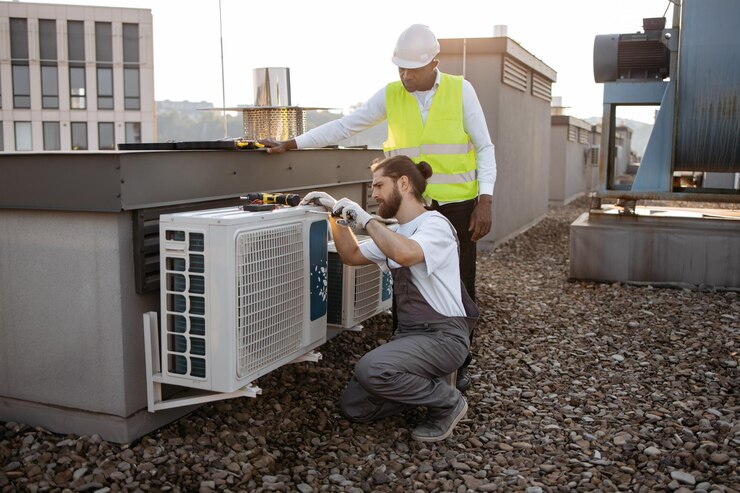Living in Christchurch, NZ, means experiencing a wide range of weather conditions, from cool winters to warm and sometimes scorching summers. As the temperatures rise, having a reliable and efficient air conditioning system becomes essential for maintaining comfort at home. Whether you’re looking to upgrade your current system or are new to the area and need guidance, understanding efficient air conditioning solutions is key to staying comfortable. Let’s dive into the world of air conditioning Christchurch and explore how to beat the heat with quality service.
Understanding the Need for Efficient Air Conditioning
Efficient air conditioning is crucial for several reasons. Firstly, it ensures that your home remains comfortable even during the hottest days. Secondly, efficient systems are designed to use less energy, which translates to lower utility bills and a reduced environmental impact. Lastly, an efficient air conditioning system reduces wear and tear, leading to fewer repairs and a longer lifespan for your unit.
Climate in Christchurch, NZ
Christchurch experiences a temperate maritime climate with distinct seasons. Summers can be quite warm, with temperatures often reaching the mid-20s to low-30s Celsius (75-90 degrees Fahrenheit). These temperatures make air conditioning a necessity for many residents. Winter temperatures, on the other hand, can drop significantly, requiring heating solutions. This variability in climate necessitates a versatile and reliable air conditioning system that can efficiently handle both cooling and, if needed, heating.
Types of Air Conditioning Systems
There are various types of air conditioning systems available, each with its own advantages and ideal use cases. Here’s an overview of the most common types:
Central Air Conditioning Systems
Central air conditioning systems are ideal for cooling entire homes. They operate through a network of ducts to distribute cool air evenly across all rooms. These systems are known for their efficiency and ability to maintain a consistent temperature throughout the home.
Split Air Conditioning Systems
Split systems consist of an outdoor unit and one or more indoor units. They are perfect for cooling specific areas or rooms within a home. These systems are highly energy-efficient and provide excellent temperature control, making them a popular choice for many households.
Portable Air Conditioning Units
Portable units are versatile and easy to move from room to room. They do not require permanent installation, making them an excellent option for renters or those needing a temporary solution. While not as powerful as central or split systems, they can effectively cool small to medium-sized rooms.
Ductless Mini-Split Systems
Ductless mini-split systems are similar to split systems but do not require ductwork. This makes them ideal for older homes or room additions where installing ducts might be impractical. They offer the same efficiency and precise temperature control as traditional split systems.
Choosing the Right Air Conditioning System
Selecting the right air conditioning system involves considering several factors to ensure it meets your specific needs:
Home Size and Layout
The size and layout of your home significantly influence which system will be most effective. Larger homes may benefit from central air conditioning systems, while smaller spaces or individual rooms might be better suited for split or ductless systems. It’s essential to choose a system that can adequately cool your entire living space without overworking.
Energy Efficiency
Energy efficiency is a critical factor to consider when choosing an air conditioning system. Look for units with high SEER (Seasonal Energy Efficiency Ratio) ratings. Higher SEER ratings indicate better energy efficiency, which can lead to significant savings on your energy bills over time. Investing in an energy-efficient system not only reduces your utility costs but also minimizes your carbon footprint.
Budget Considerations
Budget is always a key consideration when selecting an air conditioning system. While it might be tempting to opt for the cheapest option, investing in a quality system can save you money in the long run. Cheaper units might come with lower initial costs, but they often have higher energy consumption and more frequent maintenance needs. Balancing upfront costs with long-term savings is crucial for making a wise investment.
Benefits of Efficient Air Conditioning
Efficient air conditioning offers numerous benefits beyond just cooling your home:
Improved Comfort
Efficient systems maintain a consistent temperature, reducing humidity levels and eliminating hot spots. This ensures a comfortable living environment, even during the hottest days of summer. Modern systems also come with features like adjustable fan speeds and programmable thermostats, allowing you to customize your comfort levels further.
Energy Savings
Using less energy means lower utility bills. Over time, the savings from reduced energy consumption can offset the initial investment in a more efficient system. Additionally, many energy-efficient units qualify for rebates and incentives, further reducing the overall cost.
Better Air Quality
Modern air conditioning systems are equipped with advanced filtration systems that remove dust, pollen, and other pollutants from the air. This improves indoor air quality, which is particularly beneficial for individuals with allergies or respiratory conditions. Some systems also have dehumidifying functions that help control moisture levels, preventing mold growth and enhancing overall air quality.
Common Air Conditioning Problems
Even the best air conditioning systems can encounter issues. Here are some common problems and their potential causes:
Refrigerant Leaks
Low refrigerant levels can lead to inefficient cooling and higher energy bills. Refrigerant leaks are often caused by punctures or cracks in the refrigerant lines. Regular maintenance checks can prevent leaks and ensure that your system is running smoothly.
Sensor Problems
Faulty sensors can cause your system to cycle on and off unnecessarily, leading to inconsistent temperatures and higher energy use. Sensors can become misaligned or damaged over time, and adjusting or replacing them can resolve these issues.
Drainage Issues
Clogged drains can cause water damage and reduce the efficiency of your system. Air conditioners produce condensation, which needs to be drained properly. Regularly checking and cleaning the drainage system can prevent clogs and ensure efficient operation.
Air Conditioning Maintenance Tips
Proper maintenance can extend the life of your system and keep it running efficiently. Here are some essential maintenance tips:
Regular Filter Changes
Dirty filters can restrict airflow and reduce efficiency. It’s recommended to change your filters every 1-3 months, depending on usage and the type of filter. Regular filter changes help maintain optimal airflow and improve indoor air quality.
Cleaning the Coils
Both the evaporator and condenser coils can collect dirt over time. Dirty coils can reduce the system’s ability to absorb and release heat, leading to inefficient operation. Cleaning the coils at least once a year helps maintain optimal performance.
Checking Thermostat Settings
Ensure your thermostat is set correctly and consider upgrading to a programmable or smart thermostat for more efficient temperature control. These advanced thermostats allow you to set schedules and remotely adjust settings, enhancing convenience and energy savings.
Professional Inspections
Regular inspections by a professional can identify potential problems early and keep your system in top condition. Annual maintenance checks can help prevent major issues and ensure that your system operates efficiently throughout its lifespan.
Finding Quality Air Conditioning Services in Christchurch
Choosing a reliable service provider is crucial for installation, maintenance, and repairs. Here are some tips for finding quality air conditioning services in Christchurch:
Local Reviews and Recommendations
Check online reviews and ask for recommendations from friends, family, and neighbors. Word-of-mouth referrals and online feedback can provide valuable insights into the quality of service provided by different companies.
Certifications and Experience
Look for certified technicians with experience in installing and maintaining air conditioning systems. Proper certification ensures that the technicians are knowledgeable and qualified to handle various types of systems. Experienced professionals are more likely to provide high-quality service and reliable installations.
Service Guarantees
Choose a company that offers guarantees on their work. Service guarantees provide peace of mind and ensure you receive quality service. A company that stands by its work is likely to deliver better results and customer satisfaction.
The Future of Air Conditioning in Christchurch
The air conditioning industry is constantly evolving, with new technologies and solutions emerging. Here are some trends shaping the future of air conditioning Christchurch:
Eco-Friendly Solutions
Many manufacturers are focusing on eco-friendly systems that use less energy and have a lower environmental impact. These systems often utilize advanced technologies, such as variable speed compressors and environmentally-friendly refrigerants, to enhance efficiency and reduce emissions. Eco-friendly air conditioning solutions not only save money but also help protect the environment.
Smart Air Conditioning Systems
Smart air conditioning systems can be controlled remotely via smartphone apps, allowing you to adjust the temperature even when you’re not home. These systems can learn your habits and adjust settings automatically for maximum efficiency. Smart systems also provide real-time diagnostics and maintenance alerts, helping you keep your system in optimal condition.
Conclusion
Staying cool in Christchurch, NZ, is about more than just installing an air conditioning system; it’s about choosing the right system, maintaining it properly, and finding a reliable service provider. With the right approach, you can enjoy a comfortable home all year round while saving money and reducing your environmental impact. Whether you’re dealing with the heat of summer or planning for the future, efficient air conditioning solutions are the key to beating the heat with quality service.
FAQs
How often should I change my air conditioning filter?
Every 1-3 months, depending on usage and filter type.
What is the average lifespan of an air conditioning system?
Between 10-15 years with proper maintenance.
How can I improve the efficiency of my current air conditioning system?
Regular maintenance, such as cleaning coils and changing filters.
Are there eco-friendly air conditioning options available?
Yes, many modern systems are energy-efficient and environmentally friendly.
What size air conditioner do I need for my home?
It depends on your home’s size and layout; a professional can determine the best size.
How do I know if my air conditioner needs repairs?
Look for strange noises, poor airflow, and inconsistent temperatures.
Can I install an air conditioning system myself?
It’s generally recommended to have a professional install it.
What should I look for in an air conditioning service provider?
Good reviews, proper certifications, and service guarantees.
Keep an eye for more news & updates on DiscoverTribune.co.uk!



